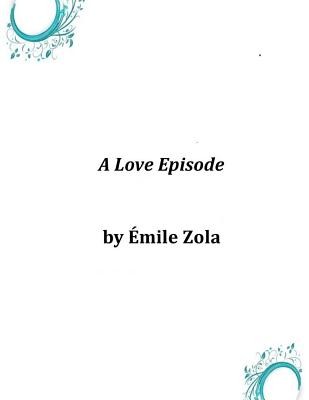
- We will send in 10–14 business days.
- Author: Ėmile Zola
- Publisher: CreateSpace Independent Publishing Platform
- ISBN-10: 149733764X
- ISBN-13: 9781497337640
- Format: 21.6 x 27.9 x 0.6 cm, minkšti viršeliai
- Language: English
- SAVE -10% with code: EXTRA
Reviews
Description
Emile Zola was born in Paris, April 2, 1840. His father was Francois Zola, an Italian engineer, who constructed the Canal Zola in Provence. Zola passed his early youth in the south of France, continuing his studies at the Lycee St. Louis, in Paris, and at Marseilles. His sole patrimony was a lawsuit against the town of Aix. He became a clerk in the publishing house of Hachette, receiving at first the modest honorarium of twenty-five francs a week. His journalistic career, though marked by immense toil, was neither striking nor remunerative. His essays in criticism, of which he collected and published several volumes, were not particularly successful. This was evidently not his field. His first stories, Les Mysteres de Marseilles and Le Voeu d'Une Morte fell flat, disclosing no indication of remarkable talent. But in 1864 appeared Les Contes a Ninon, which attracted wide attention, the public finding them charming. Les Confessions de Claude was published in 1865. In this work Zola had evidently struck his gait, and when Therese Raquin followed, in 1867, Zola was fully launched on his great career as a writer of the school which he called "Naturalist." Therese Raquin was a powerful study of the effects of remorse preying upon the mind. In this work the naturalism was generally characterized as "brutal," yet many critics admitted that it was absolutely true to nature. It had, in fact, all the gruesome accuracy of a clinical lecture. In 1868 came Madeleine Ferat, an exemplification of the doctrine of heredity, as inexorable as the "Destiny" of the Greek tragedies of old. And now dawned in Zola's teeming brain the vast conception of a "Naturalistic Comedy of Life." It was to be Balzac "naturalized," so to speak. The great cycle should run through the whole gamut of human passions, foibles, motives and interests. It should consist of human documents, of painstaking minuteness of detail and incontrovertible truth.
- Author: Ėmile Zola
- Publisher: CreateSpace Independent Publishing Platform
- ISBN-10: 149733764X
- ISBN-13: 9781497337640
- Format: 21.6 x 27.9 x 0.6 cm, minkšti viršeliai
- Language: English English
Emile Zola was born in Paris, April 2, 1840. His father was Francois Zola, an Italian engineer, who constructed the Canal Zola in Provence. Zola passed his early youth in the south of France, continuing his studies at the Lycee St. Louis, in Paris, and at Marseilles. His sole patrimony was a lawsuit against the town of Aix. He became a clerk in the publishing house of Hachette, receiving at first the modest honorarium of twenty-five francs a week. His journalistic career, though marked by immense toil, was neither striking nor remunerative. His essays in criticism, of which he collected and published several volumes, were not particularly successful. This was evidently not his field. His first stories, Les Mysteres de Marseilles and Le Voeu d'Une Morte fell flat, disclosing no indication of remarkable talent. But in 1864 appeared Les Contes a Ninon, which attracted wide attention, the public finding them charming. Les Confessions de Claude was published in 1865. In this work Zola had evidently struck his gait, and when Therese Raquin followed, in 1867, Zola was fully launched on his great career as a writer of the school which he called "Naturalist." Therese Raquin was a powerful study of the effects of remorse preying upon the mind. In this work the naturalism was generally characterized as "brutal," yet many critics admitted that it was absolutely true to nature. It had, in fact, all the gruesome accuracy of a clinical lecture. In 1868 came Madeleine Ferat, an exemplification of the doctrine of heredity, as inexorable as the "Destiny" of the Greek tragedies of old. And now dawned in Zola's teeming brain the vast conception of a "Naturalistic Comedy of Life." It was to be Balzac "naturalized," so to speak. The great cycle should run through the whole gamut of human passions, foibles, motives and interests. It should consist of human documents, of painstaking minuteness of detail and incontrovertible truth.


Reviews